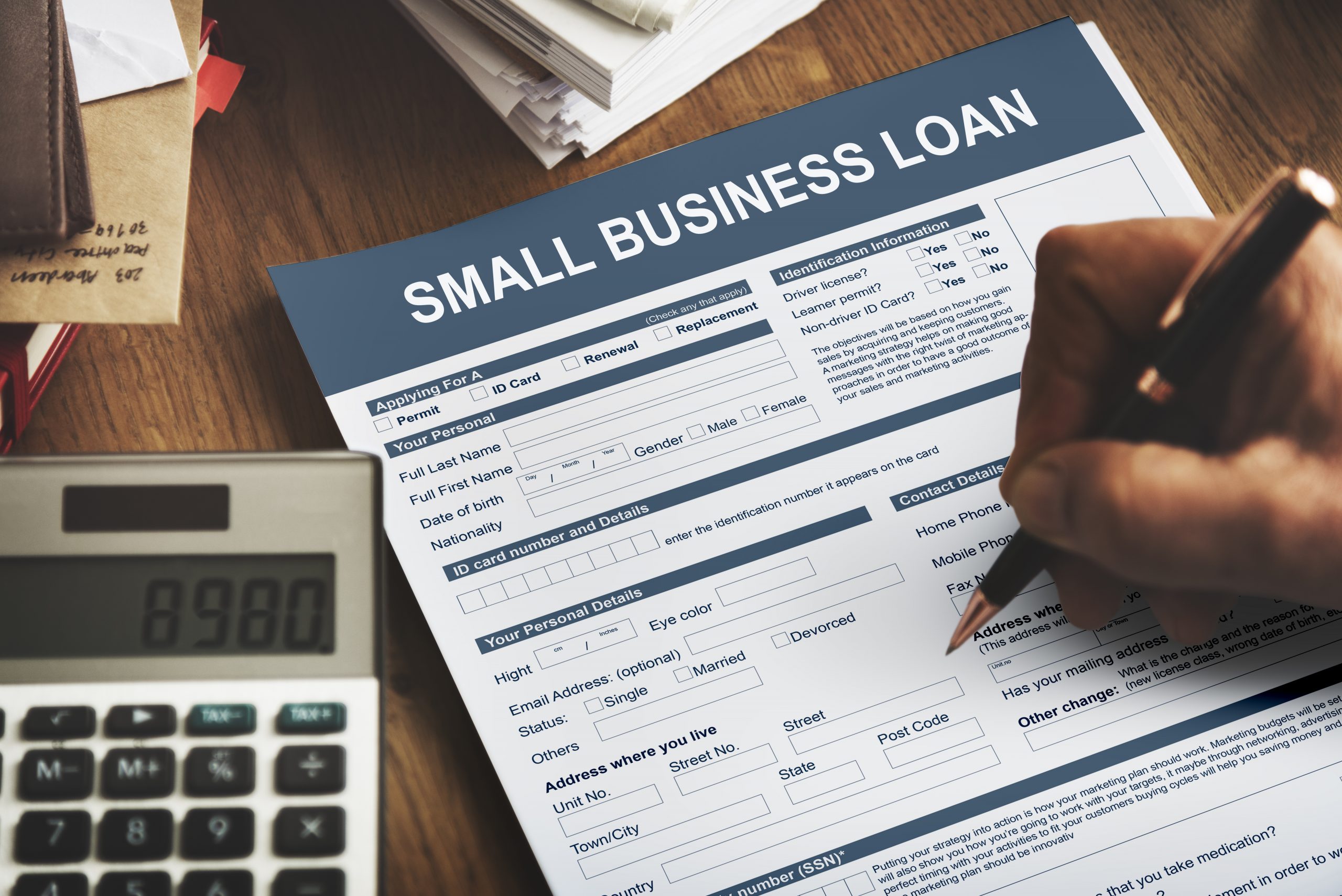Do you love food? Or the art of cooking it? Are you interested in starting up your own business? Then, you may consider starting a food truck business. But, how to start a food truck business? Is it easy or difficult?
How to Start a Food Truck
A food truck is a huge vehicle, preferably a large truck or RV with a built-in kitchen for food preparation. They are becoming very popular across the United States. More and more entrepreneurs are opting for food truck since it is much less expensive compared to buying or leasing a restaurant location.
However, before you go and buy a truck, here are some important things that you need to know about starting a food truck business, including the startup costs, finding a truck, food truck ideas, available funding options, such as business loan or line of credit, and more.
Startup Costs
Like any other businesses, there are several factors that involve determining a food truck business’ startup costs. Apart from this, there are also one-time costs, plus the fact that the costs differ from one location to another.
One-time startup costs include the food truck, materials that you need for your business, truck wrap, POS or point-of-sale system, office supplies, PR and advertising, consultation fees and even website design. This list is not yet comprehensive, but it gives you an idea about your possible upfront expenses.
Some businesses purchase a low-cost food truck without realizing they will spend more in having it modified to fit the regulations of the local health and fire departments. These regulations vary depending on the local government units.
In addition to the upfront expenses, there are recurring costs like fuel, credit card processing, equipment rental, and payroll. Furthermore, food truck businesses need to get the proper permits and licenses which also vary accordingly.
How to Start a Food Truck Business: A 10-Step Plan
Operating a food truck is not easy. Planning it thoroughly can help make your business a success. Here is a 10-step plan on starting a food truck business:
Get a License to Operate
In the world of small businesses, nothing is really easy. So, you cannot just drive a truck and sell food wherever you like. There are various requirements that are involved in this. Health department permits, parking restrictions, and truck permits are just some of them. Keep in mind that every city or state has its own rules and policies, so to get your facts straight, contact your local government offices.
There will be obstacles, so be prepared. Like what we said earlier, food truck business is not all smooth-sailing. For instance, if you are operating in New York City, expect to be on a long waiting list before obtaining a permit. The city only releases a maximum number of food truck permits, some of which do not expire in 15 years.
Moreover, other communities and cities do not allow food trucks or carts to park and operate in public space, so finding a private parking near a crowded area might be necessary, but this is a rather difficult task. However, once these are all figured out, the operations will be easier and simpler.
Get a Truck or Cart
If you are on a tight budget, the best way to start is to get a food cart. You’ll be able to find a nice one for as little as $2000 versus a hundred-grand new truck.
Wondering why food trucks are expensive? Because they need to get fitted with specialty equipment which are very expensive. This is to meet the standards of most health departments. If you want to have a food truck but do not have a six-digit figure to shell out, you can check out used food trucks which usually sell for $20,000 to $40,000. There are various online sites that cater to offer used trucks and vans.
Nevertheless, before buying a truck or cart, you have to determine what you exactly need. Selling pizza or other hot, cooked foods? Then you will need a fully-working kitchen, hence, a large truck. If you do not need to keep right in the truck and can prepare food at home and just keep your products warm using a special food warmer, then a smaller truck or food cart may suffice. The truck or cart will be your largest investment, so you have to get it right. It will be useless and a waste of money if you buy a truck worth $40,000 and all you need is a $2,000 cart.
How to Find a Food Truck For Sale
You can find a food truck for sale in different places. Here are various resource options that can help you find the perfect food truck for you.
Local online ads. Your local online classifieds is one of the best places to go when looking for a low-cost truck, especially for the used ones. An additional advantage is that you can easily go and inspect them since they are local.
National online classifieds. While this is a good option and opens a lot of possibilities, keep in mind that many of the trucks for sale here are located elsewhere. This means you won’t be able to see and check them before agreeing to buy.
New custom trucks. This is obviously the priciest option, but it is also the best way to make sure that the truck you are using meets the code and standards requirements. Plus, you can have it customized according to your specifications.
Leasing and franchising. Another option is to get a local truck available for lease, which you can have from various leasing companies. If this does not sound appealing to you, you can franchise a food truck from an established restaurant or food company. However, in franchising, you do not have control over the menu, products to offer, and even the marketing system.
Find a Niche
While tacos and sandwiches are very common in food trucks, it doesn’t mean that you also have to go in that direction. These days, food trucks can serve foreign cuisine, gourmet food, specialty desserts, and even health or diet foods.
One of the most important success factors is to find a niche and become an expert on it. Conduct research on what’s being offered in your area and come up with your own unique creation.
Here are some food truck niche ideas:
- Barbecue. Barbecue is always a good concept when it comes to food. It is low-cost food but highly-appealing. Another thing is that the sweet, savory smoke that comes from your truck is a sure-fire way of marketing.
- Ethnic Fusion. The current trend in food business is to offer two or more ethnic cuisines, resulting in some tasty ideas. Korean barbecue and Vietnamese cuisine, or traditional Filipino and Mexican recipes fused together are just some great finds.
- Health Food Trucks. Because health has also become a priority, it is also a good idea to offer healthy foods in your rolling store. You can offer low-carb meals, keto bentos, vegan options, and even low-calorie desserts.
Get Financing
Once you already know what you need to spend on, construct a finance plan. There are several financing options that you can get in order to buy a truck but you may need to get financing from other places for your small business capital. There are bank loans, start-up loans, credit unions, peer-to-peer lending networks or you can even borrow from family and friends. For trucks, figure out how much down payment you can afford and discuss with the lender about your possible interest rate.
Acquiring funding is one of the biggest challenges that you will face as you start your food truck business. Your number one goal is to create first a solid business plan and it will help if you have a good credit score on both personal and business accounts. Having good credit standing increases your chances of getting a business loan.
Traditional financing is out of the question? Then there are several other ways to get capital for your new business venture. Here are some tips on how to start your business using minimal funding:
- Talk with someone who has an existing food truck and see if they can allow you to lease or rent it.
- Use a low-cost cart or truck. Second hand equipment are great options, too.
- Try selling at pop-ups, fairs, and farmer’s markets.
- Partner with a successful restaurant owner about letting you run their company-owned trucks.
- Look for sponsors, especially if your truck offers benefit to community or provides public service.
Make a Plan
Like any other business, a food truck business needs thorough research and ample time to create a business plan. When you already have everything figured out — the loan, permits, equipment, cleaning materials, ingredients, and other costs, then it is time to determine how much you need to earn in order to make a profit.
Have Your Business Insured
Since the business you are establishing is on wheels, you have to take insurance seriously. Ask an expert or insurance agent and discuss the nature of your business. Describe exactly what your truck is like, what the purpose it will serve and what type of equipment are in there. These factors have a great impact on your insurance coverage.
While you may only need to pay for a standard vehicle insurance, your agent may need to make an adjustment to account for the risks and liabilities that involve a food truck business.
Find Parking
Since food trucks are huge vehicles, you may experience some parking issues once you operate. Will your village association allow you to park the food truck in front of your home? Is it safe to leave the truck on off-street parking? Moreover, some health departments have standards that require food trucks to have refrigeration and electricity, will this be possible in your situation? You may want to consider renting a private space that provides your truck a safe and legal way to park.
Get Connection
This business is not just setting up and serving lunch. Many food truck vendors cater to corporate events and special functions. There are event planners that hire food trucks to be on their property during an event.
Having connections in the local government and the business world allows you to have a head start. Ask for contracts and keep the connection in good terms. Make “networking” one of your job descriptions. Join clubs and associations that specialize in your field. Use your skills to meet new people and people that matters, who can connect you with other names and companies and recommend you as a caterer.
Use the Power of Social Media
Many successful food truck businesses make use of social media to connect with customers and create a buzz. Keep your followers updated about your whereabouts through your Twitter and Facebook feeds. Create an Instagram page and post your mouth-watering creations to invite new and repeat customers alike.
You can also interact with your customers and allow them to vote on what they like most from your menu and what new items they want to have. Let them pick next week’s special, the new color of your truck and any other things that you can get them involved.
Expand
Once you have created a steady following and you got your brand known, start thinking about expansion.This does not have to be big. Merchandising is a great way to expand and promote your business at the same time. You can offer t-shirts, mugs, and other promotional items online or right at the store. Once your brand becomes bigger, customers are more likely to be more willing to buy and wear your cool cap or tshirt. You can even ask local coffee shops and grocers to sell your goods if they think you are already big enough to be recognized.
Conclusion
Building a new food truck business can be a challenging task, but with proper planning and with the help of the right people and partners, you can easily get the things you need to get started. Soon, with the right management and marketing skills, your business will surely be a success.





